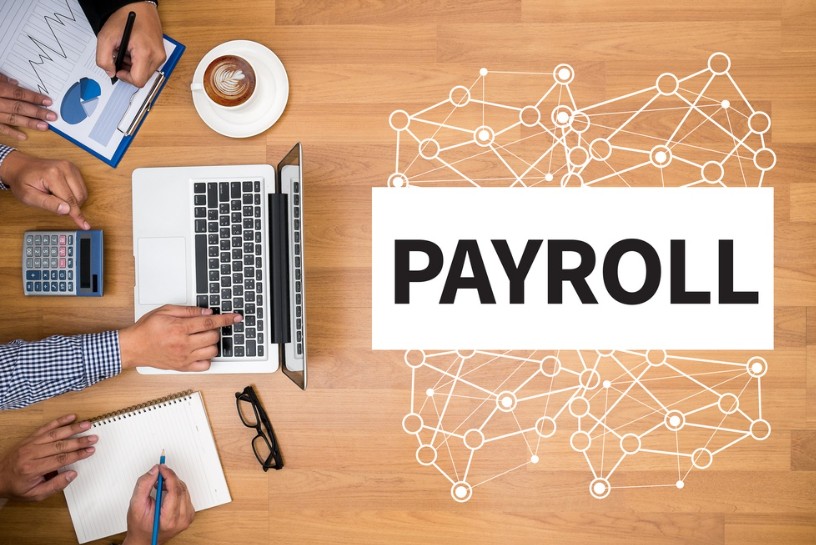Payroll Overload? Know When It’s Time to Make the Switch
Managing payroll can be a complex and time-consuming task for businesses, especially as they grow. Outsourcing payroll is a common strategy to improve efficiency and reduce errors. In the UK, approximately 41% of businesses outsourced their payroll in 2022, highlighting a significant reliance on external providers to ensure compliance and streamline operations. Additionally, research from ADP indicates that HR teams in mid-sized UK companies spend about 18% of their time on payroll tasks, underscoring the administrative burden that outsourcing can alleviate.
If your business is still handling payroll internally, it may be time to reconsider. Switching to a payroll provider can save your company time, reduce risks, and allow you to focus more on core business activities.
How Can a Payroll Company Transform Your Business Operations?
Switching to the services of a professional payroll company, such as Pay Check, can significantly optimise your business operations. From automating payroll processes to ensuring tax compliance, payroll service providers bring expertise and efficiency to your company. With advanced technology and experienced professionals managing payroll, you can reduce the burden on your internal team and improve the accuracy of financial transactions. This allows you to focus on strategic tasks while your payroll provider ensures your employees are paid accurately and on time.
What Are the Signs It’s Time to Switch to a Payroll Provider?
If your business is spending too much time on payroll tasks, facing errors in payroll processing, struggling with managing staff benefits, or finding it difficult to stay compliant with tax laws, it may be time to outsource to a payroll provider. These providers can reduce your workload, ensure accuracy, and help manage the complexities of benefits and compliance.
Increased Time Spent on Payroll Tasks

Managing payroll can become a significant drain on your time. As your business grows, payroll tasks may expand beyond simple calculations, involving complex tracking of hours, benefits, and deductions. This not only consumes valuable resources but also takes focus away from strategic business functions. Employees handling payroll may quickly become overwhelmed with the volume of work, leading to burnout and inefficiencies that could harm the overall productivity of your team. Outsourcing to a payroll provider frees up your internal resources, allowing them to focus on core activities and growth.
Complexity of Managing Staff Benefits
As your team grows, managing staff benefits such as private healthcare schemes, workplace pensions, and paid time off becomes increasingly complex. Tracking eligibility, updates to benefit schemes, and ensuring timely enrolment can take up significant time and lead to errors. Payroll providers streamline these processes by integrating benefits management directly into payroll systems, reducing administrative burden and ensuring compliance with regulations. This integration ensures that employees’ benefits are correctly managed without adding to your internal team’s workload.
Payroll Errors and Inconsistencies
Payroll errors, whether incorrect deductions or missed payments, are not only frustrating for employees but can also lead to compliance issues and fines. If you notice a recurring pattern of errors in your payroll, it’s a clear sign that the process may be too complex to handle in-house. Payroll providers use advanced technology and automated systems to ensure accuracy in calculations, reducing the likelihood of mistakes. Their expertise ensures that your employees are paid correctly and on time, and it provides peace of mind regarding payroll consistency.
Compliance Challenges with Tax Laws
Navigating the ever-changing landscape of tax laws and regulations can be a daunting task, particularly for small businesses. The penalties for non-compliance with tax laws can be severe, ranging from fines to audits. Payroll providers specialise in staying up-to-date with UK tax laws and HMRC regulations, ensuring that your business remains compliant. Their expertise minimises the risk of errors, allowing your business to avoid costly penalties while maintaining a smooth payroll process.
How Will Switching to a Payroll Provider Save You Time and Resources?

Switching to a payroll provider can save your business time and resources by reducing administrative tasks like calculating pay, withholding taxes, and generating reports. Payroll providers also automate tax calculations and filings, ensuring compliance and minimising errors. Additionally, many providers offer integration with accounting and HR systems, streamlining processes and saving time on manual data entry.
- Reduced Administrative Workload: Payroll providers handle tasks such as calculating pay, withholding taxes, and generating reports, allowing your team to focus on core business activities.
- Automation of Tax Calculations and Filing: Payroll providers automatically calculate and file taxes, ensuring that you comply with UK tax regulations and HMRC requirements. This reduces the risk of late filings or errors that could lead to penalties.
- Integration with Other Business Systems: Many payroll providers offer systems that integrate with accounting and HR software, creating a seamless process that saves time on manual data entry.
What Are the Key Benefits of Switching to a Payroll Provider?
Switching to a payroll provider offers several benefits for your business, including improved payroll accuracy, better compliance with labour laws, and access to advanced tools for reporting and tracking employee hours. This helps reduce errors, ensures timely payment, and provides valuable insights into business operations.
Improved Accuracy in Payroll Processing
Payroll providers utilise advanced technology to ensure precise and timely employee pay. By automating calculations and processing, these systems significantly reduce the risk of human error, ensuring that employees are paid correctly and on schedule.
Better Compliance with Labour Laws
Keeping up with ever-changing labour laws can be a major challenge, especially for small businesses. A payroll provider ensures your business stays compliant with the latest regulations, helping you avoid costly fines and penalties by staying current with legal requirements.
Access to Advanced Payroll Tools and Reporting
By partnering with a payroll provider, you gain access to powerful tools designed to simplify payroll management. These tools help generate detailed payroll reports, track employee hours, and review your compliance status, giving you deeper insights into your business’s payroll operations and overall performance.
Why Is Payroll Compliance Crucial for Your Business?

Payroll compliance is crucial for your business to avoid legal consequences, hefty fines, and penalties from tax agencies. Non-compliance can lead to lawsuits, audits, and financial penalties. A payroll provider helps ensure your business stays up-to-date with tax law changes, reducing the risk of costly mistakes.
- Legal Consequences: Failing to comply with payroll tax regulations can result in lawsuits, audits, and significant financial penalties.
- Risk of Fines and Penalties: HMRC and UK regulatory bodies impose hefty fines on businesses that fail to file taxes correctly or misclassify employees. Ensuring compliance is essential to avoiding these risks.
- Staying Updated with Tax Law Changes: Tax laws frequently change, and staying up to date can be time-consuming and complicated. A payroll provider ensures your business is always compliant with the latest tax rules.
What Costs Are Involved in Switching to a Payroll Provider?
Switching to a payroll provider involves set-up fees, monthly subscriptions, and potentially additional costs for services like year-end tax submissions or staff benefits. While these costs vary, evaluating the return on investment (ROI) is essential, as the time saved and reduced payroll errors often result in long-term savings.
Set-up Fees and Monthly Subscriptions
Payroll providers typically charge a setup fee to integrate your business into their system, along with a monthly subscription based on the number of employees. This subscription covers essential payroll services such as pay calculation, tax withholding, and bank transfer. The cost may vary depending on your business size and payroll needs.
Potential Hidden Costs
In addition to the subscription fee, some providers may charge extra for services like preparing P60S, P11DS, and other year-end HMRC submissions, staff benefits management, or specialised reports. It’s important to clarify any additional fees before committing.
Evaluating ROI for Your Business
When switching to a payroll provider, consider the return on investment (ROI). Although there are costs involved, the time saved, reduced errors, and improved compliance often result in long-term savings. The efficiency gained through payroll automation can significantly benefit your business.
How Do You Choose the Right Payroll Provider for Your Business?
When choosing a payroll provider, consider their experience and reputation in your industry, ensuring they have the expertise to meet your specific needs. Evaluate the services they offer, such as benefits administration and tax filing, and choose one that aligns with your business. Additionally, check customer reviews to ensure reliable support in case issues arise.
- Experience and Reputation: Look for a payroll provider with a proven track record in your industry. They should have the necessary expertise to handle your specific payroll needs.
- Service Offerings and Customisation Options: Different payroll providers offer different services, such as benefits administration, HR software/tools, and tax filing. Choose a provider that offers the services that align with your business needs and can grow with you.
- Customer Support and Reviews: Research customer reviews to determine the quality of customer support. Ensure that the provider offers reliable and accessible support in case issues arise.
How Will Switching Affect Employee Satisfaction?
Switching to a payroll provider can boost employee satisfaction by ensuring faster and more accurate payments, which builds trust. It also improves transparency in benefits and taxes, reducing confusion. Additionally, staff portals provide easy access to payslips and benefits information, enhancing overall convenience and satisfaction.
Faster and More Accurate Payments
Payroll providers ensure employees receive their pay on time and with accurate deductions, eliminating delays and errors. This builds trust and increases satisfaction, as employees feel valued and rely on consistent payment.
Improved Transparency in Benefits and Taxes

Payroll providers enhance transparency by clearly showing benefits and tax deductions on payslips. This reduces confusion and fosters trust, as employees understand how their compensation is calculated.
Overall Convenience for Employees
With staff portals, payroll providers allow workers to access payslips, P60S, and benefits information at any time. This convenience boosts satisfaction by giving employees control over their financial information.
What Are the Common Mistakes When Switching Payroll Providers?
Common mistakes when switching payroll providers include overlooking compatibility with existing systems, which can cause disruptions. Failing to inform employees about the change can lead to confusion, while ignoring ongoing support and training needs can create issues down the line. Proper communication and support are key to a smooth transition.
- Overlooking Compatibility with Existing Systems: Ensure that the payroll provider you choose integrates well with your existing accounting and HR systems. Incompatibility can cause significant disruptions and extra work.
- Failing to Communicate with Employees About the Switch: Employees should be informed in advance about the switch to avoid confusion. Clearly communicate any changes to payroll processing and how it may affect their payments.
- Ignoring Ongoing Support and Training Needs: A payroll provider isn’t a one-time solution. Make sure they offer ongoing support and training to keep your team up to date with the system and to address any issues that arise.
Conclusion
In conclusion, switching to a payroll provider can streamline payroll, ensure compliance, and reduce administrative burden, allowing your business to focus on growth. It improves accuracy, transparency, and convenience, boosting employee satisfaction. However, it’s crucial to choose a provider with the right expertise and support, while avoiding common mistakes like poor communication or system incompatibility. Evaluating the long-term benefits will help you decide if this switch is the right move for your business.







